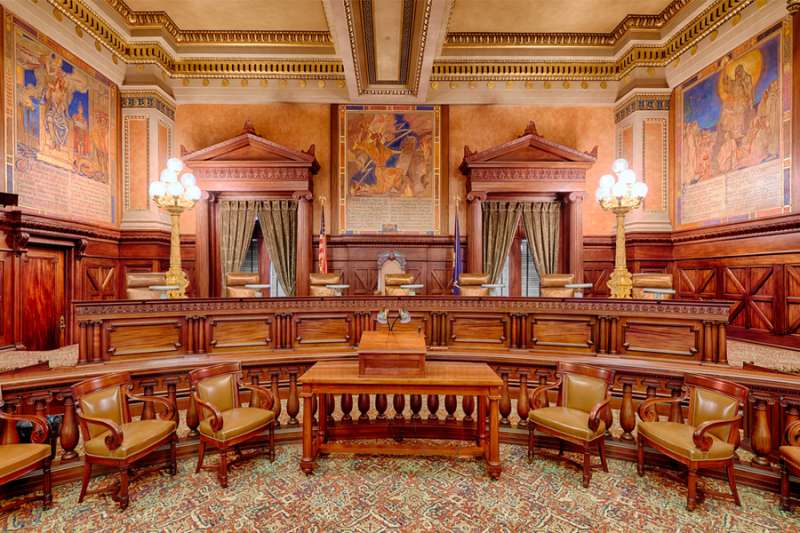The former chief justice of Pennsylvania’s Supreme Court has warned that the release of a grand jury report into allegations of sexual abuse and coverups by the Catholic Church in that state could violate the constitutional rights of those named in the report.
In an Aug 6 column in the Philadelphia Inquirer, Ronald D. Castile wrote that the state’s Supreme Court initially halted the report’s release because of “important constitutional issues,” including “questions regarding due process, fairness, and deprivation of personal reputational rights.”
“After reviewing the Supreme Court opinion, I agree that important constitutional rights are at risk of being denied because of issues pertaining to procedural aspects inherent in the Grand Jury Act and the impact on individual reputational rights.”
Article 1 of the Pennsylvania Constitution enshrines a person’s right to possess and protect their good reputation, placing it on the same footing as life and liberty.
Several individuals named in the report, including some priests, objected to being included in the document. They argued that the grand jury report links their names to terrible crimes or cover-up efforts, but that they had not been afforded the chance to respond to allegations made against them, or given the benefit of due process of law.
Castile agreed, criticizing “the inability of many of the named clerical members of the Catholic Church to defend themselves against allegations contained in the report.”
A source close to the grand jury investigation told CNA that while named individuals had been allowed to send in written statements during the investigation, they were not given the chance to appear in person, answer questions directly, or question other witnesses.
The Pennsylvania Supreme Court ordered on July 27 that a redacted version of the report be published no later than August 14.
Castile, who spent 20 years as a prosecutor in the state of Pennsylvania and served as Chief Justice of the Supreme Court from 2008-2014, said that the Supreme Court’s decision to delay the release and order the redaction of some names had his support.
“I agree with the court's action, and I agree with its decision to assign all the parties concerned immediate hearings on the constitutional issues identified in the process and the substance of the report.”
Pennsylvania Attorney General Josh Shapiro has been critical of the objections and pressed for the full report to be released as soon as possible. He even wrote to Pope Francis, asking him to tell intervene and order those appealing against the report’s release to “abandon their destructive efforts to silence the survivors.”
Castile said that the attorney general should have an equal concern for protecting the rights of all Pennsylvania citizens, and that the release of “quasi-official accusations of misconduct against many named but uncharged individuals” who have not had the chance to defend themselves was not appropriate.
The former chief justice stressed that an important function of a grand jury report is to recommend ways to address issues brought up in the course of the investigation, but that the Supreme Court’s decision allowed for any such recommendations to be published in a way that did not infringe constitutional rights.
The 800-page report is expected to name 300 priests accused of sexual abuse in six Pennsylvania dioceses over a period of decades. The dioceses are Pittsburgh, Erie, Allentown, Harrisburg, Scranton, and Greensburg.
The Diocese of Harrisburg and Diocese of Erie have already released the names of all clerics credibly accused of abuse, and Bishop David Zubik of Pittsburgh has committed to doing the same.
While Castile said it is important that victims of abuse receive justice, and that the recommendations of the grand jury investigation should be made public, he said that justice also requires protecting the rights of individuals and the presumption of innocence.
“What is called for is exactly what the Supreme Court has ordered,” Castile said, “a rational discussion of the issue by all sides in order to address the important constitutional questions that have arisen in the grand jury report.”

